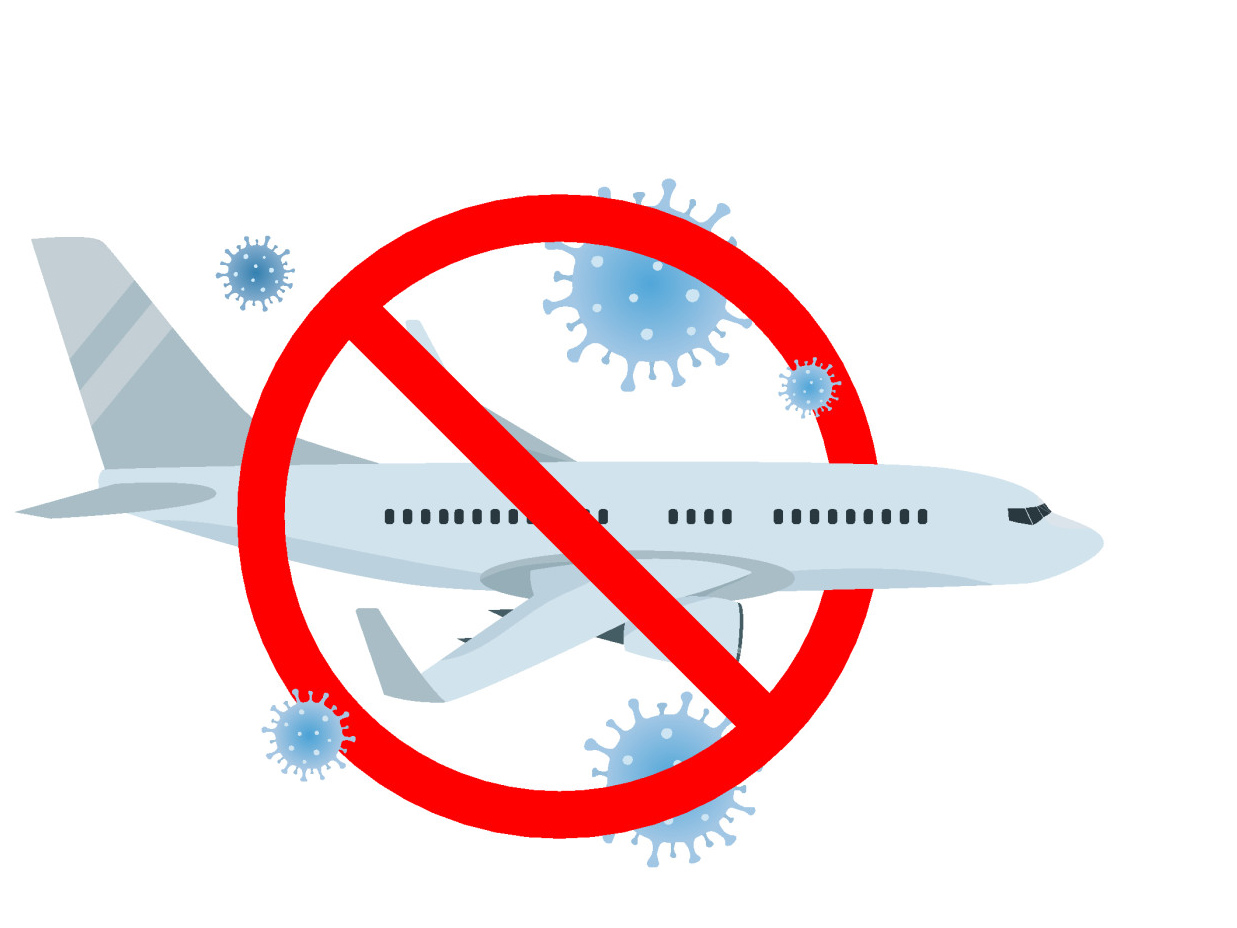eNews April 9
In the News
April 9, 2020
Extending Term Options for Creditors
—Michael Miller, managing editor
Fielding questions and receiving phone calls and emails from customers is all part of the job for credit professionals. It’s a daily occurrence for those who have a more involved customer-creditor relationship than others. But during uncertain times such as a natural disaster or a global pandemic, credit departments should be prepared to hear from customers a lot more often. While it’s usually the other way around—credit departments contacting customers for payment, data to complete credit applications, etc.—debtors are now reaching out to their creditors asking for help.
As the coronavirus outbreak continues its course in the U.S. and abroad, businesses are being squeezed to operate within certain confines to support public health and safety. And while they follow the recommendations and guidelines, many businesses and industries are greatly impacted financially.
Credit departments are starting to feel the impacts of the coronavirus. NACM’s “Coronavirus Credit Impacts March 2020” survey was conducted the last full week of the month with nearly 90% of the 549 responses collected on March 23. Less than 10% of respondents said their credit department has not been impacted by the coronavirus. Meanwhile, just over 10% reported more customer-initiated contact. Almost half of all survey respondents said customer contact during the coronavirus is due to a request for an extension in payment terms. That was followed closely by the inability/unwillingness to pay invoices.
“Only a couple customers are asking for lengthened terms,” said Colin Dolan, accounts receivable manager with Northern Air Cargo in Alaska. He is more concerned about the drop in new customers than customers asking for extended terms.
While not all respondents received requests for extended terms, those who did, extended customers’ terms on average a quarter of the time. That’s up from 17% prior to the coronavirus outbreak. As many respondents said, they are working with customers who make reasonable requests; they are reviewed on a case-by-case basis. It is important to remember that terms are governed under antitrust laws and to make sure not to knowingly or unknowingly discriminate against customers.
However, some credit departments are holding firm—almost a fifth noting they said no to extending terms or increasing credit lines. “Balances were created prior to [the outbreak;] they need to honor the terms they agreed to,” said one respondent. Some credit departments aren’t lengthening terms, but are allowing grace periods or are giving customers a little extra time to make payments.
“I don’t see any reason for us to panic. … As long as money is coming in and we can pay our bills, we’re doing pretty well,” Dolan added.

Early Bird Deadline Is Tomorrow—Register Now and Save!
Reap the benefits of online education, including better job performance and prospects. Choose from the many upcoming educational courses we offer:
CBA/CBF/CCRA Courses
Accounting: May 4–Aug. 21
Business Law: Apr. 27–Jul. 24
Credit Law: Apr. 27–Jul. 24
International Credit
International Credit & Risk Management: May 11–Aug. 9
• Give your job performance and prospects a boost
• More convenient than the traditional classroom
• Earn course credit toward an NACM designation
• Choose your study and exam times
To be the best, you have to learn from the best! Visit Online Courses to learn more and register for courses.
To be the best, you have to learn from the best! Visit Online Courses to learn more and register for courses.
Airlines and Credit: How Aviation Credit Managers Are Navigating the Pandemic
—Christie Citranglo, editorial associate
Industries across the world have been affected by the COVID-19 pandemic, notably damaging airlines, hotels and other industries related to travel and gatherings. The state of the virus and the markets continue to evolve and change on a weekly, daily and even hourly basis, putting credit managers with customers in these risky industries in difficult positions.
While the $2 trillion economic stimulus package was passed by Congress, credit managers and the rest of the general public still do not know how the package will affect the U.S. economy. While navigating these unpredictable times, credit managers with customers in the airline industry—from airplane parts to airline food—fall back on communication, basic principles and education.
Deborah Kessler, CGA, director of association services at NACM North Central, works with an aviation credit group, connecting credit managers who have companies involved with aviation. She said the credit managers she works with began seeing the effects of the pandemic before many other industries, which sparked the need for increased communication among credit managers. Since the news surrounding COVID-19 changes so frequently, credit managers need to look out for one another now more than ever.
“Just communicate. The biggest thing we can do right now is communicate with one another,” Kessler said. “Every day, with everything we see and everything that’s going on, just so we can be better able to handle what comes next. If we don’t know, that’s the worst thing.”
Reporting as much as possible through NACM’s website is crucial as well, Kessler said. Relying on financial data from before the pandemic—which is much of the information available to credit managers—no longer paints an accurate picture of a customer’s company. While communicating with colleagues in person is no longer an option, staying connected through NACM will keep credit managers informed and able to make more educated decisions.
Steven Smith, director of financial operations at Aviation Concepts, echoes this sentiment of reporting while also staying grounded in the basics. Smith understands his customers will be paying primarily on a triage basis, taking care of essential bills first, such as employee salaries and engine fuel. Credit managers should think about where they may fall in their customer’s priorities and use that information to determine how best to deal with the customer.
“We’re just trying to pivot as we see it. You have to follow the industry as it goes,” Smith said. “But how you get paid is determined by how you fall in line with [your vendors]. ... Depending on where you fit in is how you’re going to adjust to the new temporary norm.”
Just because a customer has the money does not mean the customer will be able to pay, Smith said. Smith and Kessler also recommend staying educated and on top of the pandemic as it unfolds, paying attention to news updates inside and outside of the credit field.

This course satisfies one of the two CBF designation course requirements. Visit the Credit Learning Center (CLC) or contact the NACM Education Dpt. at This email address is being protected from spambots. You need JavaScript enabled to view it. or 410-740-5560 to learn more.
SMBs & COVID-19: A Not-So-Pleasant Mix
—Andrew Michaels, editorial associate
Following success in 2019, many small- to medium-sized businesses (SMBs) anticipated ongoing growth in 2020—that is, until COVID-19 reared its ugly head in January. More stores are closing every day—some doing so in order to comply with state-wide stay-at-home or shelter-in-place mandates—and each day, it becomes more apparent it is only going to get worse before it gets better. The question remains: How will SMBs navigate this pandemic during and after it runs its course?
NACM received more than 500 responses in its March survey of which 250 were from companies with less than 500 employees. Here are their expectations before, during and after the COVID-19 pandemic. Respondents from these smaller businesses spanned 26 industries, largely including manufacturing, wholesale and construction.
Prior to the outbreak, respondents said, an average of 18% of customers would receive extended payment terms when requested. Since COVID-19, respondents said they have extended terms for more than a quarter of their customers. Furthermore, about 37% of the respondents’ customers received credit line increases when requested before COVID-19, a percentage that has since dropped to 22%. More than 10% of respondents said they declined customers’ requests for both extended payment terms and increased credit lines, while more than 12% declined one or the other.
In Alabama, Credit Manager Ann Gulledge, who participated in the survey, is the sole credit manager for a relatively small company that supplies paper to the food packaging industry.
On the U.S. side of business, Gulledge said two large customers have asked for extended terms. One of them has always been a discount customer. If extended terms are allowed, she added, the company will see a large increase in its accounts receivable.
“We insure our receivables, but starting in early March, we began to see a lot of credit line cancellations and reductions,” she said. “We’ve had more cancellations in the month of March than we’ve probably had in the previous three years. Getting credit line increases has been more of a challenge, too. We find we must request financials on any large request. This is a new development.”
Meanwhile, the company’s customers in Mexico are having an especially difficult time paying due to the falling peso against the dollar, Gulledge said. They now have to send about 30% more than they paid a few weeks ago. At this time, two customers in Mexico have asked for additional time to pay, one of whom asked the company to continue to ship its goods.
“I’m not seeing any real issues yet from any other foreign customers,” she said. “The Canadian dollar has dropped some also, but not nearly as much as the Mexican peso.”
Her company is looking closely at the accounts it sells uninsured, Gulledge noted, and either trying to get them insured or reducing their exposure.
Today’s business climate during COVID-19 has its ups and downs. Her company’s customers who make products for schools or who make cups for movie theaters and sporting venues are not faring as well, Gulledge said, with one customer having shut its doors for now. However, there has been uptick in business, particularly folding carton customers due to the increased need for takeout containers, paper trays for hospital food and frozen food boxes. Eight trucks of paper were also sold last week to produce boxes for COVID-19 test kits.

Get the Know How You Need to Break Through the Challenges of Global Credit
The completely revised and updated International Credit & Risk Management course features:
- Practical, fresh content designed for global credit practitioners
- Integrated discussions with other credit professionals worldwide
- Online networking to facilitate learning and the exchange of ideas
- integrated webcasts led by experts and practitioners
- Regular comprehension checks
- Instructor guidance and insight
After successful completion of the course and final exam, you will receive the FCIB’s Certified International Credit Professional (CICP) designation. Early rate good until April 10. For more information and to register, please visit FCIB.
After successful completion of the course and final exam, you will receive the FCIB’s Certified International Credit Professional (CICP) designation. Early rate good until April 10. For more information and to register, please visit FCIB.
What You Need To Know About Doing Business During the Coronavirus Outbreak
—Lynda A. Bennett, Esq., Doreen M. Edelman, Esq. and Steven S. Rogers, Esq
- Experts predict more outbreaks after COVID-19. Business leaders should start preparing now.
- Paying attention to force majeure clauses in contracts and watching for pandemic exclusions in insurance policies will be critical first steps.
- Leaders should assess supply chains and contracts with suppliers to ensure they have options when disruptions occur.
As of April 7, 2020, with more than 1.3 million cases reported globally, including more than 368,000 in the United States—and both totals increasing by the hour—the COVID-19 pandemic is wreaking havoc on financial markets. Industries like travel and hospitality have sustained staggering direct hits. The manufacturing sector’s reliance on China, where the disease originated, has meant disrupted supply chains and upended energy markets.
At this point, executives in every industry should be scrutinizing contracts, reviewing insurance coverage, and assessing potential supply chain, workforce or revenue disruptions. And they should also be thinking beyond COVID-19, preparing their businesses to withstand the next mass epidemic—and the ones after that.
Because whether COVID-19 turns out to be a global cataclysm or not, experts predict more public health scares are on the way. We can’t know exactly how these events will unfold, or what disruptions they might bring, but we know there are questions all leaders should ask and steps they should take to mitigate future losses their organizations may face.
Take force majeure seriously. In the past, few contract negotiations focused on force majeure—the clauses that allow parties to suspend or terminate performance when circumstances beyond their control make it impossible or unwise to carry out their obligations. Now, executives the world over are learning that the fate of their enterprises may hinge on the language in these clauses. Moving forward, every force majeure clause in every agreement with vendors and suppliers should be carefully scrutinized, worded and negotiated. At the very least, epidemics should be explicitly defined as force majeure triggers.
Review supply chains and identify alternatives. The average C-suite executive isn’t accustomed to fully understanding the details of every product’s specific supply chain. With the disruptions spreading far beyond China, senior executives will have to get creative. They should consider ways to fund alternative production sites, seek locations for product assembly (for an expanding list of products) that meet the substantial transformation test and assess tariff classification determinations. Companies will have to explore new foreign relationships, consider creative ways to take advantage of U.S. free trade agreements, and even evaluate the development of possible North American source alternatives.
Review supplier contracts. Businesses often agree to grant suppliers the exclusive right to produce their goods or parts in order to secure a lower price. That philosophy should be revisited, and contracts with existing suppliers should be reviewed; if they grant strict exclusivity, consider renegotiating. Then determine where your next-best alternative is, and how that will impact costs and the efficiency of your supply chain. And be wary of agreeing to exclusivity in future supplier agreements.
Anticipate insurance exclusions. Executives the world over are no doubt scouring their companies’ insurance policies to determine whether the COVID-19-related losses will trigger business interruption coverage. The scope of available coverage will largely depend on whether companies can demonstrate direct physical losses flowing from the virus, such as work facilities being infected, and whether government actions will amount to sufficient exertions of civil authority to require insurers to step up. But whatever the answers or the outcomes of inevitable battles with insurers, business leaders should start thinking ahead, to their next rounds of policy renewals. Rest assured the insurance industry is assessing the COVID-19 fallout, knowing that similar global health issues may arise in the future. Some insurers may impose pandemic exclusions on policies to avoid coverage litigation. We saw these kinds of exclusions following the outbreaks of SARS and Ebola. Assessing the impact of pandemic exclusions should become a key part of future policy negotiations. If the exclusions cannot be removed, then businesses should be pressing for premium reductions commensurate with the reductions in coverage.
Lynda A. Bennett, Esq., Doreen M. Edelman, Esq. and Steven S. Rogers, Esq. from Lowenstein Sandler LLP.

Understanding Culture:
Concept of culture, insights into the dynamics
familiar vs. foreign, iceberg model of culture
Mindfulness Is The Mental Gym
Intercultural Perspectives and Communication:
Cultural values, cultural stereotypes,
change of perspectives, perception
Weary of Waivers?-
How to Avoid Potential Pitfalls
to Set Your Texas Payment Claim Up for Success
Demand for Credit is Changing: Here’s How To Manage It
Cross-Cultural Communication:
Communication styles, culture and communication,
cross-cultural communication, in the context of US-India —English is not English
Understanding Culture:
Concept of culture, insights into the dynamics
familiar vs. foreign, iceberg model of culture
Mindfulness Is The Mental Gym
Intercultural Perspectives and Communication:
Cultural values, cultural stereotypes,
change of perspectives, perception
Weary of Waivers?-
How to Avoid Potential Pitfalls
to Set Your Texas Payment Claim Up for Success
Demand for Credit is Changing: Here’s How To Manage It
Cross-Cultural Communication:
Communication styles, culture and communication,
cross-cultural communication, in the context of US-India —English is not English



